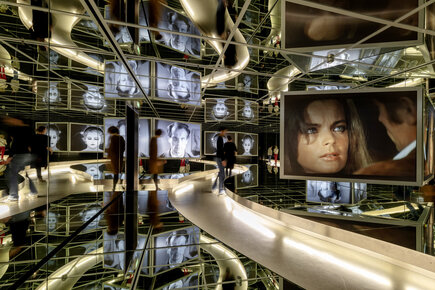Echnaton (Akhnaten)
Directing is Barrie Kosky, whose Moses and Aaron and now Akhenaten show us how contemporary music can take mythic figures and make them strikingly vivid and tangibly real.
Thebes around 1300 BCE, at the dawn of a new era: Amenhotep III has died, and his son, Amenhotep IV, who later takes the name Akhenaten, is crowned pharaoh. The story depicts his love for Nefertiti, as well as the destruction of the Temple of Amun, the centre of the ruling polytheistic religion. Akhenaten supports only the new religion of Aten, in which the sun is worshipped as the sole supreme deity.
Finally, the narrative jumps to the present, in which Akhenaten’s demise and the resurgence of the former priestly caste are told from the perspective of a modern tour group visiting ancient Egyptian sites.
But in the background, we can now see Akhenaten’s ghost joining the funeral procession of his predecessor.
In the oeuvre of Philip Glass, the grand format of the opera forms a central pillar. With Einstein on the Beach , Satyagraha , and Akhnaten , he created a triptych whose first two parts pay homage to two influential figures of the twentieth century: Albert Einstein and Mahatma Gandhi. The Egyptian pharaoh Akhenaten, on the other hand, lived some 3,500 years earlier, and is considered the founder of the first monotheistic religion. A religion that never fully prevailed and that vanished after Akhenaten’s death, and yet is considered an important precursor to later monotheistic religions: Judaism, Christianity, and Islam.
Minimal music emerged in the United States of the 1970s as a response to serialism, which was dominant in Europe at the time. It is structured around patterns that keep returning like a prayer wheel. The resulting near-imperceptible shifting and layering give minimalist compositions the hypnotic pull that typify this style of music and have made it one of the most popular genres of the twentieth century, going far beyond the classical audience.
DID YOU KNOW?
The opera’s foregrounding of brass makes it sound particularly archaic. The actual reason behind this choice was that the first venue’s orchestra pit was too small for a violin section, so the composer simply omitted it.
